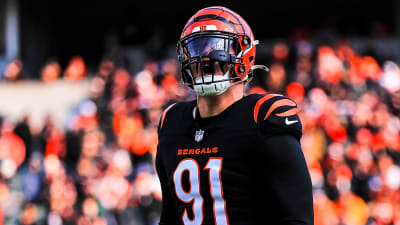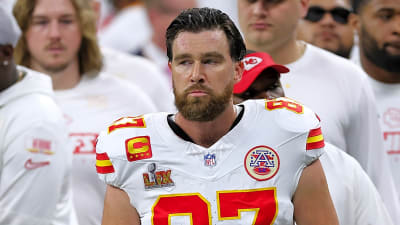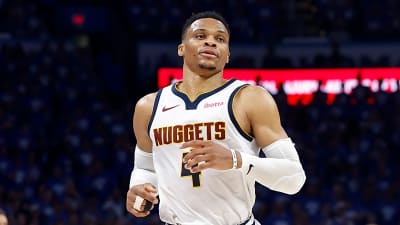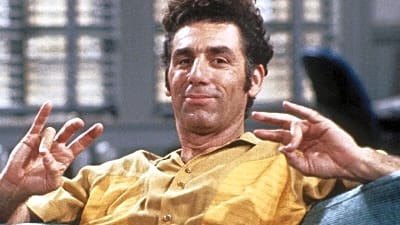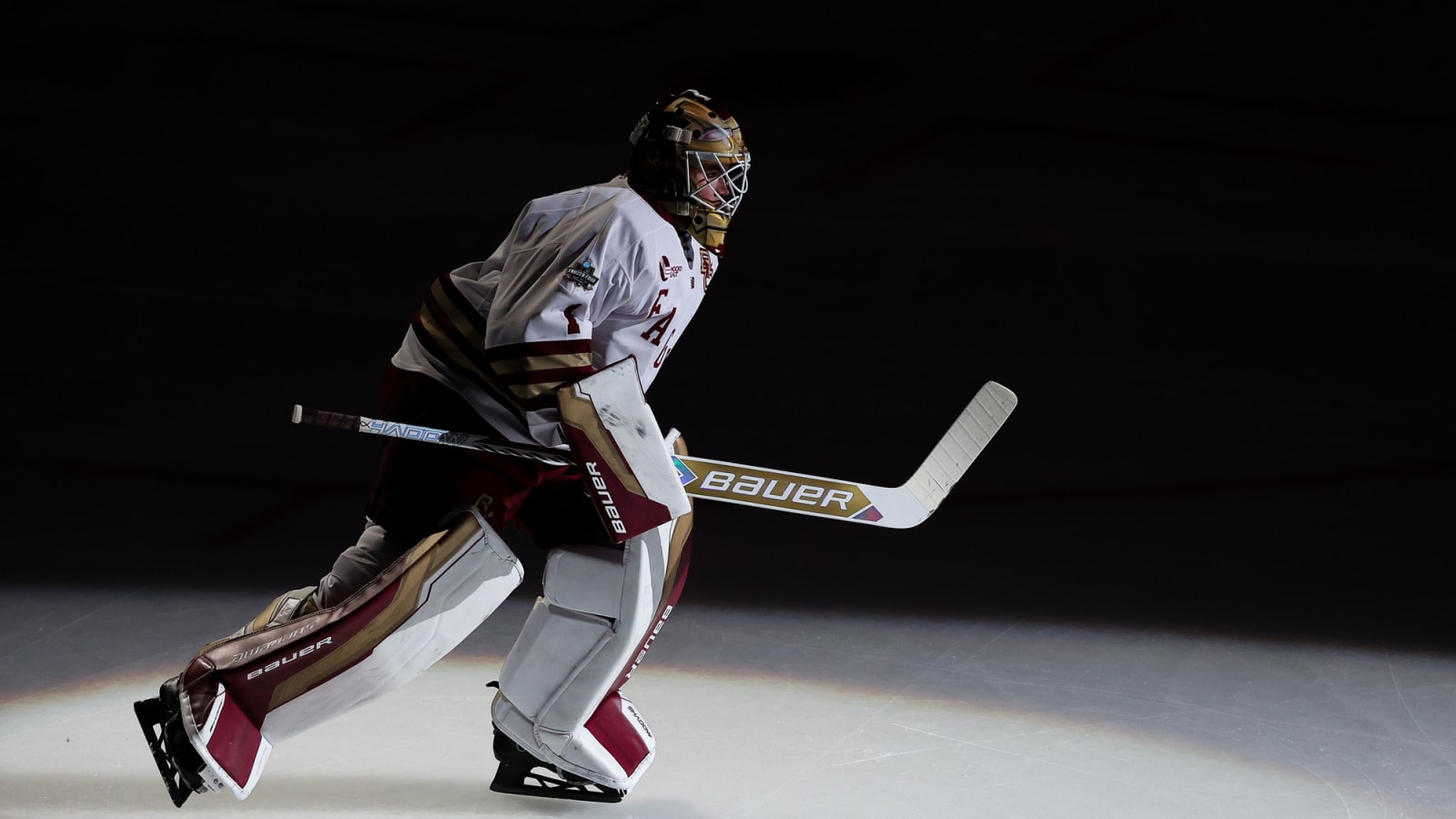
Only a few players remain in our 2024 Montreal Canadiens summer prospect rankings, with cerebral goaltender Jacob Fowler kicking off things in the top 3. Fower, 19, quickly became one of the most important prospects in the organization due to his excellent freshman play in the NCAA, as well as the Canadiens’ goaltending situation in the NHL.
Previously Published 2024 Montreal Canadiens Summer Prospect Rankings
To qualify for our list, Habs prospects must be 23 years old or younger, and have fewer than 100 NHL games under their belt.
3. Jacob Fowler, Goaltender, 19, Boston College (NCAA), 6’2″, 214 lb. Picked 69th overall in 2023.
No team owns a richer history than the Montreal Canadiens when it comes to legendary goaltenders. Jacques Plante, Ken Dryden, Patrick Roy, George Hainsworth, and Gump Worsely are just some of the incredibly talented goalies that helped the team secure a league record 24 Stanley Cups. And then there’s Georges Vezina, after whom the league named the yearly trophy for the goaltender judged to be the best at this position.
Carey Price played in a different era, as did fellow Hart and Vezina winner Jose Theodore, which significantly mitigated the chances they’d win as many cups as their predecessors. However, you’d be hard-pressed to argue they did not carry their teams to a level of success that could have been achieved without jaw-dropping performances in the net.
For roughly 100 years, it was the Montreal Canadiens method. Speed and talent up front, elite goaltending in the back. But now that the league is tied into a salary cap, the strategy is no longer efficient. Paying a goaltender more than 10 percent of the available cap space makes icing a winning lineup rather difficult. Of course, there are exceptions, as evidenced by Sergei Bobrovsky’s Stanley Cup winning season with the Florida Panthers, but the two goaltenders that backstopped a team to the Stanley Cup before him, Adin Hill and Darcy Kuemper, were earning $2.175 and $5.5 million per season, respectively.
Elite contending is good, but not if it comes with an elevated price tag, as the difference between an elite goalie and a good goalie is rather minor in the grand statistical scheme of things. And then there’s the matter of running a player into the ground, leaving him too tired to perform if the team makes a healthy push in the playoffs, as evidenced by the Canadiens with Price, and the New York Rangers with Henrik Lundqvist.
This brings us back to the giant void that was left when Price unofficially retired. Samuel Montembeault, Jake Allen, and Cayden Primeau did a good job holding the fort in the short term, and they did so with very reasonable contracts, but there’s no doubt that beyond the NHL players, the Canadiens had very few legitimate goalie options in their prospect pool prior to picking goaltender Jacob Fowler 69th overall in 2023.
The Habs do not necessarily need another Price, but by the time they’re ready to compete, they will need a reliable netminder that can provide good value from a salary cap standpoint, and that’s where Fowler will hopefully come into play, especially if the team moves on from Montembeault when his contract expires in 2027.
With the benefit of hindsight, we can safely say drafting Jacob Fowler was quite the coup. He wasn’t the top ranked goaltender at the 2023 NHL Entry Draft, but given how well he’s played since then, there are certainly a few teams regretting their choice to skip over Fowler when it was their time to select a prospect. One of the main issues according to scouts prior to the draft was that Fowler didn’t necessarily have the ideal body shape for an athlete. In other words, some thought he was a little too chubby to succeed, but I would like to remind everyone that Patrick Roy’s nickname when he entered the league was ‘Casseau’, because he was very fond of getting fries at chip trucks. It’s also important to remember that goaltenders burn a lot of calories, losing up to 10 lbs of water weight during a game. There’s a reason they’re constantly drinking between whistles.
Besides, body shapes differ, but one thing you can’t dismiss is results, and that’s where Fowler shines. He maintained a 27-9-3 record with the Youngstown Phantoms of the USHL in 2022-23, not to mention a .921 save percentage. He followed it up with a borderline immaculate record of 8-1 in the playoffs, as well as a fantastic .952 save percentage, which earned him a bevy of accolades as he carried the Phantoms to a Clark Cup championship. Fowler was the Clark Cup MVP, the goaltender of the year, and of course, a First-Team All-Star.
The most interesting aspect of his great run is that his .921 save percentage in the regular season was actually the lowest of his recorded career, but it was more than enough to convince the Canadiens that Fowler was an ideal target to join the team and add much-needed talent and depth to the prospect pool.
Jacob Fowler In The NCAA
Despite putting up excellent numbers everywhere he started, playing in the NCAA was the true test for Fowler, as it represented a major uptick in quality of competition. Fortunately, Fowler was incredibly well insulated as the Boston College Eagles’ goaltender. The Eagles were one of the top teams in the entire country, which means they spent a lot of time in the offensive zone, keeping the puck as far away from Fowler as possible on most nights. The flip side of a team that had Will Smith, Gabe Perreault, Ryan Leonard, and Cutter Gauthier up front is that when they did cough up a puck, it led to high-danger scoring chances for the opposition.
With that in mind, Fowler won 32 of the 39 games in which he featured, far and away the best result in the NCAA. He also produced a .926 save percentage, a significant feather in the freshman’s cap. Once all the accounting was over, Fowler emerged from his first year in the NCAA as a Hockey East Champion. He was also named to the All-American Team, the All-Rookie Team, the All-Tournament Team (Hockey East), and the First All-Star Team.
Fowler powered his team to the Frozen Four final by allowing just five goals against in three games, including a 4-0 shutout win over Michigan in the semi-finals, but the offence dried out in the final, leading to a 2-0 loss to Denver in the last game of the season. Regardless of how the year panned out for the Eagles, there’s no doubt Fowler emerged as one of the best goaltending prospects in the hockey landscape.
Shoutout To Canadiens scout Billy Ryan
The Canadiens did not reveal much in their draft video, but one of the few interesting conversations took place between Billy Ryan, the Director of Player Evaluation and Amateur Scout, and the rest of the scouting team.
It’s very difficult to evaluate goaltenders, and with the power of hindsight we can say Ryan’s passionate argument regarding Fowler’s potential certainly held water, but we also have to give him full marks for making the argument prior to Fowler’s ascension to the NCAA. He identified a market inefficiency with Fowler’s pre-draft ranking and pushed the entire scouting team toward the selection, even if there were a few goaltenders who were ranked higher than the netminder hailing from Florida.
Jacob Fowler Going Forward
Watching Fowler play in the NCAA was an exercise in boredom, and that’s exactly what you want to see from a young goalie who just made the most significant jump in his hockey career. He uses great anticipation and elite puck tracking skills to maintain excellent positioning. He’s also quite smart, something he pairs with well-timed aggression to cut down angles whenever the opposing team reaches a high-danger scoring area. Furthermore, he doesn’t waste much energy when making adjustments, a sign that his style of play has already matured since graduating from the USHL.
We should also note that despite dealing with a lot of traffic inside his crease, particularly when the Boston Eagles were frustrating opponents with their superior talent, Fowler rarely faltered. In those situations, he quickly stood up and continued his dominant play in the net.
Like most prospects, Fowler is far from perfect. At times, he can sit a little too deep in his crease, especially if the puck quickly goes from the back of the net to the slot. He also had a relatively hard time at the World Junior Championship, though the experience he gained as he won the gold medal with fellow Canadiens prospect Lane Hutson should serve him well as he enters his second year in the NCAA.
Some have suggested Fowler is already good enough to make the jump to professional hockey, but the Canadiens would be wise to apply a heavy dose of patience when it comes to his development. There’s absolutely no reason to rush him to professional hockey. The Canadiens don’t need another goalie in the mix at the moment, nor do the Laval Rocket. We can also point to the last two goalies the Canadiens convinced to leave the NCAA early, Cayden Primeau and Jakub Dobes, as cautionary tales. Dobes had a hard time adapting to the intense schedule of professional hockey, while Primeau’s development resembles a Jackson Pollock painting, in that it had no rhyme or reason.
Leaving him in the NCAA for the time being also exploits one of the most important advantages of drafting a goalie who is set to play college hockey. Teams have four years to offer NCAA players an entry-level, as opposed to the two season allotted when drafting a goalie out of the CHL.
Do you agree or disagree with our Montreal Canadiens prospect rankings??
More must-reads:
- Stanley Cup Final Game 5 takeaways: Panthers one win away from history
- Kevin Durant’s top choice reportedly does not want him
- The '50-goal NHL seasons since 2000-01' quiz
Breaking News
Trending News
Customize Your Newsletter
 +
+
Get the latest news and rumors, customized to your favorite sports and teams. Emailed daily. Always free!

